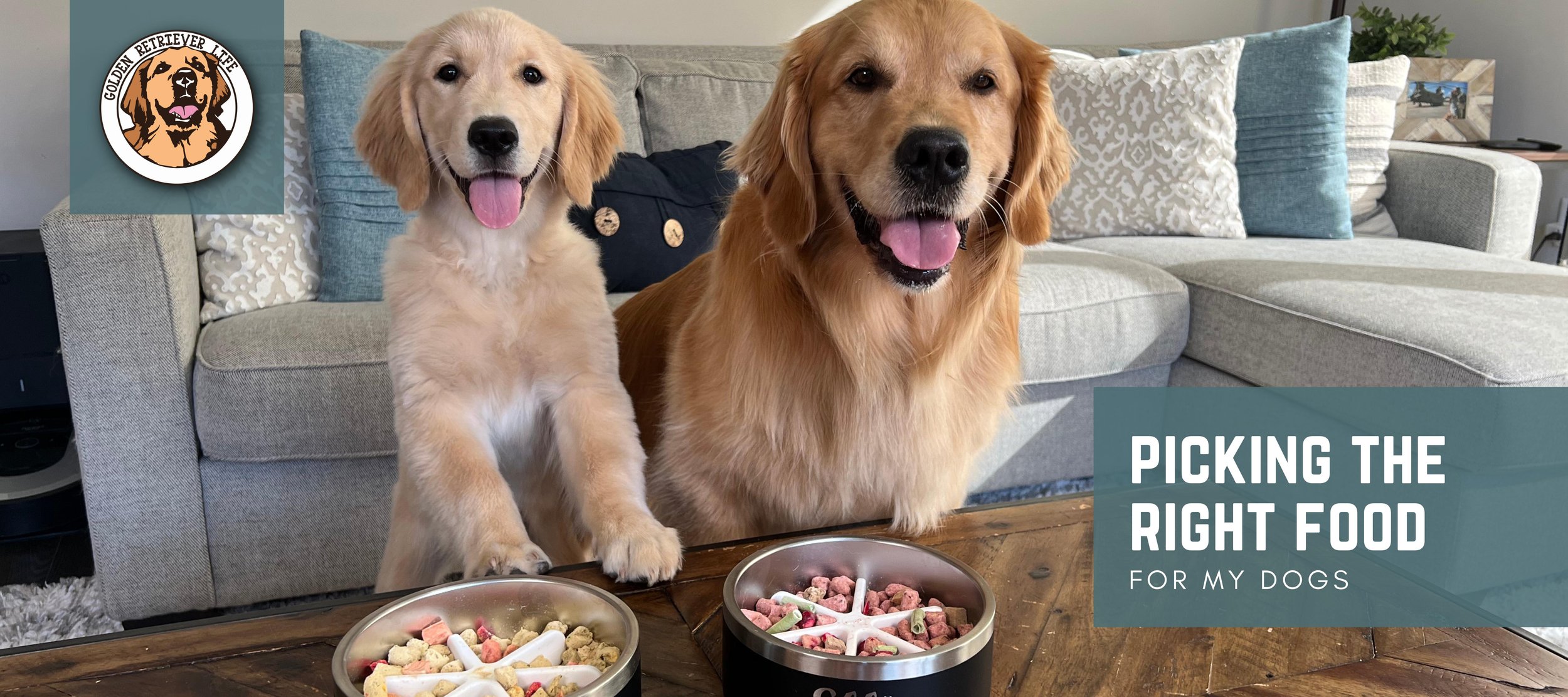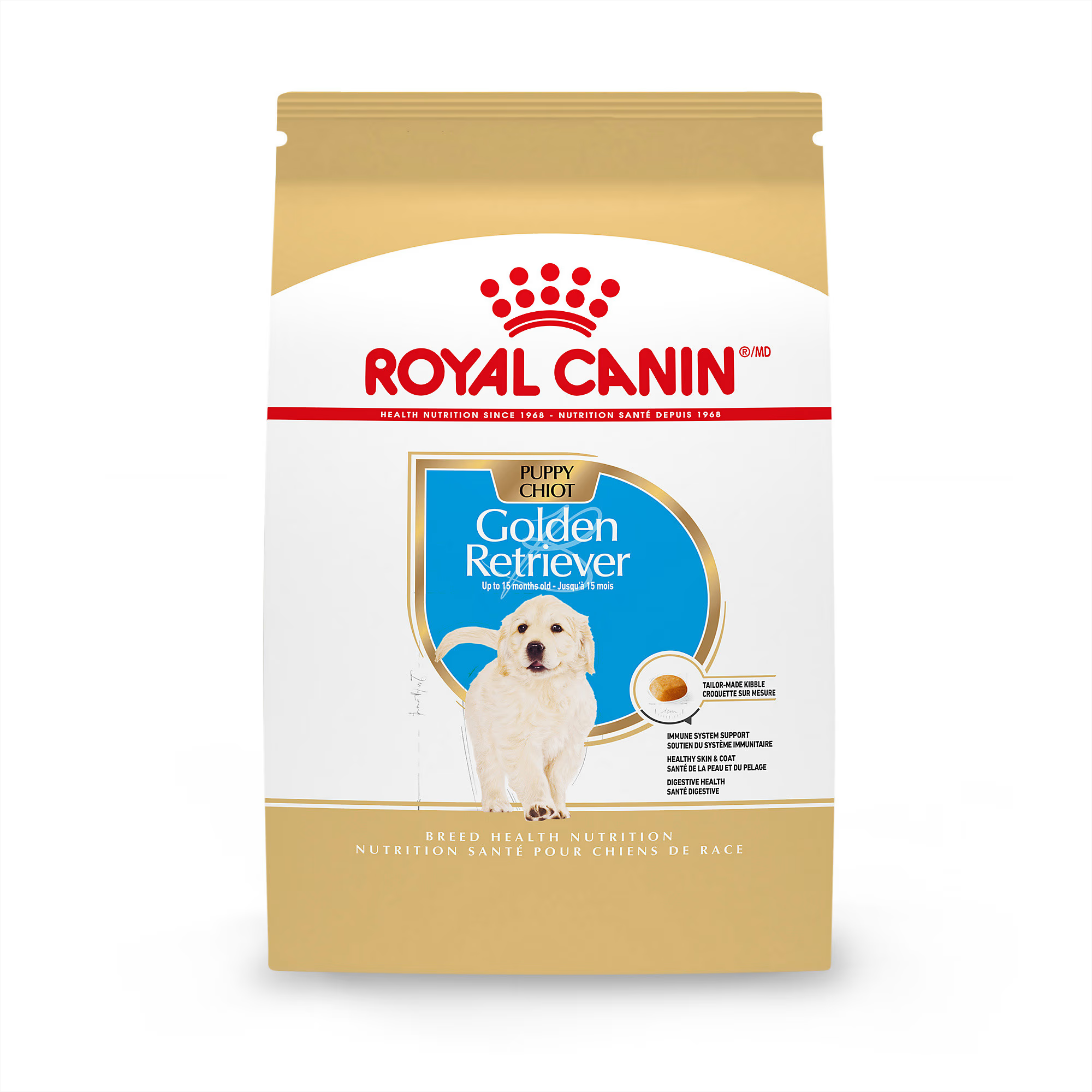So you’ve brought home a cute little golden retriever puppy, and now you’re wondering: what is the best food for my furry friend? Well, you’ve come to the right place! In this article, we’ll dive into the world of puppy nutrition and explore the top options for feeding your golden retriever.
Finding the perfect food for your golden retriever puppy is essential to support their growth, health, and happiness. With the vast array of choices out there, it can be overwhelming to know where to start. But fear not! We’re here to guide you through the maze of kibbles and canned goodness to help you make the best decision for your four-legged companion.
Feeding your golden retriever puppy a balanced and nutritious diet is crucial during their early stages of development. It lays the foundation for a strong immune system, healthy bones and joints, shiny coat, and boundless energy. So, let’s roll up our sleeves, dig into the research, and discover the best food options that will keep your golden retriever puppy wagging its tail with joy!
Best Food for Golden Retriever Puppies: A Guide to Proper Nutrition
Bringing home a new Golden Retriever puppy is an exciting time. Along with all the joy and fun, it’s important to ensure your furry friend is receiving the proper nutrition for optimal growth and development. In this guide, we will explore the best food options for Golden Retriever puppies, providing detailed information that will help you make informed decisions about their diet. From choosing the right type of food to understanding portion sizes and nutritional requirements, we’ve got you covered. Read on to discover the key factors to consider when selecting the best food for your precious Golden Retriever puppy.
1. Understanding the Nutritional Needs of Golden Retriever Puppies
Golden Retriever puppies have different nutritional needs compared to adult dogs. During the first year of their life, puppies go through rapid growth and development, requiring more calories, protein, fats, and essential nutrients. A balanced diet that supports their growth while maintaining overall health is crucial.
Protein is the foundation of a puppy’s diet as it aids in muscle development and supports the immune system. Look for high-quality protein sources such as chicken, beef, or fish. It’s essential to choose puppy-specific food formulas as they are designed to meet the unique needs of growing pups.
In addition to protein, carbohydrates provide energy, fiber aids in digestion, and fats contribute to a healthy coat. Essential vitamins and minerals like calcium, phosphorus, and omega-3 fatty acids are also important for bone development and brain function.
2. Types of Food for Golden Retriever Puppies
When it comes to choosing the best food for your Golden Retriever puppy, you have several options: dry kibble, wet food, or a combination of both. Each type has its pros and cons, and the choice ultimately depends on your puppy’s preferences and dietary needs.
Dry kibble is a popular choice for many puppy owners as it is convenient, has a longer shelf life, and promotes good dental health by reducing plaque and tartar buildup. Look for high-quality dry kibble specifically formulated for puppies, ensuring it contains a balance of essential nutrients.
Wet food, on the other hand, is a great option for puppies who struggle to chew or have dental issues. It often contains higher moisture content, which can contribute to better hydration. Mixing wet food with dry kibble can provide a variety of textures that entices picky eaters.
3. Feeding Schedule and Portion Control for Golden Retriever Puppies
Establishing a regular feeding schedule is important for Golden Retriever puppies. Aim for three meals a day until they are around six months old, then transition to two meals a day. This helps maintain a consistent energy level throughout the day and supports proper digestion.
It’s essential to follow the portion sizes recommended by your veterinarian or the food packaging. Overfeeding can lead to obesity, joint issues, and other health problems. Adjust the portion sizes as your puppy grows, ensuring they maintain a healthy weight and body condition.
If you have any concerns about your puppy’s growth or weight, consult with your veterinarian for personalized feeding recommendations. They can provide guidance based on your puppy’s specific needs and monitor their growth progress.
4. The Importance of Water and Treats
Alongside a nutritious diet, providing fresh and clean water is crucial for your Golden Retriever puppy’s health. Make sure they have access to water at all times, and clean their water bowl regularly to prevent bacteria buildup.
When it comes to treats, it’s important to choose options that are specifically made for puppies. Treats can be used as rewards during training sessions or as occasional snacks. However, be mindful of the calorie intake from treats and adjust their daily food portions accordingly.
Choosing the Best Food for Your Golden Retriever Puppy
Now that you have a solid understanding of the nutritional needs, types of food, feeding schedule, and portion control for Golden Retriever puppies, you are equipped to make the best choices for your fur baby. Remember to consult with your veterinarian for personalized advice and monitor your puppy’s growth and development closely. By providing the right food and care, you are setting your Golden Retriever puppy on the path to a healthy and happy life filled with tail wags and cuddles.
Key Takeaways: What is the best food for a Golden Retriever puppy?
When it comes to feeding your Golden Retriever puppy, it’s important to choose a high-quality dog food that meets their nutritional needs. Here are some key takeaways to keep in mind:
- Look for a dog food that is specifically formulated for puppies, as they have different nutrient requirements than adult dogs.
- Choose a dog food that lists a high-quality protein source, such as chicken or beef, as the first ingredient.
- Avoid dog food that contains artificial colors, flavors, and preservatives, as these can be harmful to your puppy’s health.
- Consider feeding your puppy a balanced diet that includes a mix of dry kibble and wet/canned food to provide variety and hydration.
- Consult with your veterinarian to determine the right portion size and feeding schedule for your Golden Retriever puppy based on their age, weight, and activity level.
Frequently Asked Questions
Welcome to our Frequently Asked Questions section on the best food for golden retriever puppies! We understand the importance of providing your furry friend with a balanced and nutritious diet. Below, you will find answers to common questions regarding what to feed your golden retriever puppy to keep them happy and healthy.
1. How do I choose the best food for my golden retriever puppy?
When selecting food for your golden retriever puppy, it is important to look for a high-quality puppy food specifically formulated for large breeds. These foods provide the right balance of protein, fat, and nutrients to support their growth and development. Additionally, opt for foods that contain real, whole ingredients rather than fillers or artificial additives. Consulting with your veterinarian can also help you make an informed decision about the best food for your puppy’s specific needs.
Keep in mind that the best food for your golden retriever puppy may vary depending on their individual requirements and any specific health concerns they may have. It’s always a good idea to monitor their response to the food and make necessary adjustments accordingly.
2. How often should I feed my golden retriever puppy?
Golden retriever puppies have high energy levels and fast metabolisms, requiring frequent meals to support their growth and development. Generally, it is recommended to feed your golden retriever puppy three to four small meals throughout the day until they are about six months old. As they reach adulthood, you can transition to two meals per day.
However, it is essential to monitor your puppy’s weight and adjust their feeding schedule accordingly. If they start gaining too much weight or become overweight, you may need to consult with your veterinarian to determine the appropriate feeding frequency and portion size for your specific puppy.
3. Should I feed my golden retriever puppy dry or wet food?
Both dry and wet food options can be suitable for golden retriever puppies, depending on their individual preferences and specific health needs. Dry food is generally more convenient and helps promote dental health by reducing plaque and tartar buildup. Wet food, on the other hand, can be more palatable for picky eaters and can provide additional hydration.
Ultimately, the decision between dry and wet food should be based on your puppy’s preferences, overall health, and recommendations from your veterinarian. You can also consider a combination of both to provide variety and meet your puppy’s nutritional needs.
4. Are there any specific ingredients I should avoid feeding my golden retriever puppy?
While golden retriever puppies have specific dietary needs, there are certain ingredients that you should avoid feeding them. These include artificial preservatives, colors, and flavors, as well as fillers such as corn, wheat, and soy. Additionally, excessive amounts of salt and sugar should be avoided.
It’s important to read the ingredient list on dog food labels and choose products that prioritize real, whole ingredients. If you have any concerns or questions about specific ingredients, consult with your veterinarian for guidance.
5. Can I give my golden retriever puppy treats?
Treats can be a great way to reward and train your golden retriever puppy. However, it’s important to choose treats that are specifically made for puppies and are appropriate for their size. Too many treats or treats with excessive calories can contribute to weight gain and other health issues.
Always use treats in moderation, and consider using healthy options such as small pieces of cooked chicken or dog-friendly fruits and vegetables as alternatives to store-bought treats. As with any dietary changes, it’s best to consult with your veterinarian to ensure the treats you choose are suitable for your golden retriever puppy.

Finding the best food for your golden retriever puppy is important for their health and growth. Puppies need a balanced diet that includes high-quality protein, healthy fats, and essential nutrients. Look for a dog food specifically formulated for puppies to support their development. Avoid foods that contain fillers, artificial ingredients, and excessive amounts of grains. Consult with your veterinarian to determine the right portion size and feeding schedule for your puppy. Remember to provide fresh water at all times and monitor your puppy’s weight to ensure they are growing at a healthy rate.
Overall, feeding your golden retriever puppy the right food is key to their well-being and happiness. By giving them the proper nutrition, you are setting them up for a healthy and active life. So, take the time to research and choose a high-quality puppy food that meets their nutritional needs, and don’t hesitate to seek guidance from your veterinarian along the way. Happy feeding!
